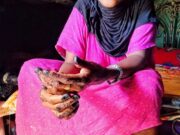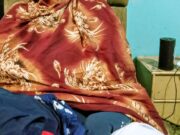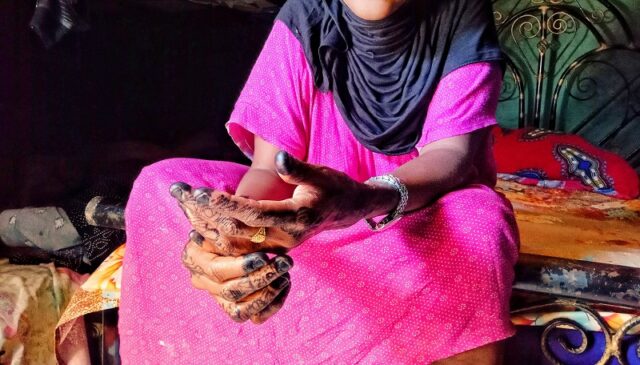Why do some women who use family planning do so without their husbands’ knowledge or against their husbands wishes? Seynab is one woman who uses contraceptives without her husband’s knowledge. I spoke to her, and she shares more information about what transpired that led her to keeping this secret from her husband.
By Maryanne W. Waweru l wawerumw@gmail.com l @MaryanneWaweru
31-year-old *Seynab is a mother of eight. She had her first child when she was just 13 years. After she had her fourth child at the age of 20, she felt she needed a break from ‘constantly being pregnant and breastfeeding’.
After confiding in some of her friends in her Eastleigh neighbourhood, they advised her to go on family planning until her last child was at least three years old. The idea seemed good to her, and she immediately shared this information with her husband. She also sought his permission to visit a family planning clinic.
Husband’s refusal
Unfortunately, her husband disapproved, saying that children come from God at His own timing. He warned her against interfering with God’s will. Additionally, he said it was not in accordance with their Somali culture for her to use modern family planning.
“Despite my attempts to get him to understand my point of view, he didn’t budge and cautioned me against visiting the family planning clinic. When I shared the news with my friends, they advised me to visit the clinic anyway. They told me my husband didn’t need to know.”
Secret agenda
Seynab heeded their advice and visited the family planning clinic without her husband’s knowledge. She was put on a five-year contraceptive implant. The nurse assured her that she wouldn’t get pregnant until her last child was in nursery school.
However, her husband soon discovered her secret.
“It didn’t take long for him to see the strange stick under the skin on the inside of my upper arm. Of course, he was infuriated and demanded that I take it out immediately. I tried to protest but he threatened to leave me if I stayed with it,” Seynab remembers.
Complying with husband’s wishes
Eventually, afraid of losing her marriage, Seynab went back to the clinic and had the implant removed. She conceived not too long after. While she had desired to have a five-year gap between her fourth and fifth child, pressure from her husband to take out the implant saw the gap reduce to just two years.
After giving birth to her fifth child at just 22 years, Seynab figured that she needed a better strategy to delay her next pregnancy.
As she was busy thinking about this strategy, she found herself pregnant again!
Her sixth child was born just eighteen months after the previous one.
A more serious secret strategy
Seynab knew she couldn’t deal with another pregnancy soon, and decided to be more serious.
“I went to the family planning clinic again without my husband knowing and explained my predicament to the nurse. I told her that while I wanted a family planning method that would delay my pregnancy for about three or four years, I didn’t want my husband to find out. Having an implant again was out of the question because he would discover it just like the last time. The nurse helped me to settle on the three-month injection.”
Counting on a good neighbour to keep my secret
To ensure success, Seynab made an interesting arrangement with her good friend Christine, whom she fondly refers to as Tina. She asked Tina to safely keep her family planning clinic card in her house, and to always remind her when the date for the next injection was due.
Every three months, Seynab would leave home to go to the ‘market’, pass by Tina’s house, get her card, go to the clinic, receive the injection and then pass by Tina’s house again to drop the card before heading home. It is a strategy that worked because for three years, and only when she felt she was ready for another child did she stop the injection appointments.
She then got her seventh child at the age of 27 years.
Careful not to arouse husband’s suspicion
Seynab’s arrangement with Tina continued well, where she would receive the injection secretly while keeping the card at her friend’s place. She was however careful to keep the birth spacing of her two last children to three years, lest her husband and her in-laws became suspicious about why she was taking long to conceive.
Last year, at the age of 30, Seynab gave birth to her eighth child.
Seynab says that she will wait for her current lastborn to turn four years before having another child.
“My aim is to have 10 children in total, so I have two more to go. But at least I’m having them at my own time, and without pressure from my husband and my in-laws,” she says.
Family planning among refugee Somali women in Nairobi
Seynab’s experience is not unique among the urban married Somali refugee women residing in Nairobi County. According to research undertaken by Dr. Eliphas Gitonga Makunyi, a population and sexual reproductive health expert and lecturer at Kenyatta University.
The study sought to examine the utilization of family planning among blended married Somali refugee women aged 15-39 years in Nairobi, Kenya. The blend included Somali women from neighbouring countries (refugees) and natives from Nairobi and the northern region of Kenya.
The study established that when Somali women want to use family planning, they will use it irrespective of the opinion of their partner. This they do because of the pressure of life, empowerment, and health effects.
“If a woman wants to use family planning, she will use all available means to do so. Most will use injectables that cannot be detected. They can even use pills which they hide in charcoal stores, or within maize flour, or even sometimes within the pillowcase without the partner noticing. Some even have a neighbor keep the contraceptives for them,” Dr. Gitonga says of the study findings.
Also read: Why I decided not to give birth again after delivering my 10th child
Also read: The story of Sadiya and Mama Kevo of 7th Street
Seynab is one of the 26% Somali refugee women in Nairobi who use modern family planning, according to the study. The main methods of family planning are injectable (33.1%), pills (24.4%), and implants (23.8%). All three methods are hormonal based. Despite the level of uptake being low, the high prevalence of the injectable is consistent with other studies, including demographic health surveys (26%), that find it higher among other modern family planning methods. This is mostly due to the discrete nature of the method in the context of a non-supportive male partner for family planning.
The study showed that a refugee who had lived in Nairobi for 21–30 years had a higher likelihood of utilizing family planning. Migration is associated with attitude change due to the norms of the host community.
Dr. Gitonga’s study also established that a husband’s or partner’s disapproval of family planning reduced the likelihood of family planning utilization among Somali refugee women. Towards this, one of the key recommendations of the study is to increase the level of constructive male engagement among Somali refugees in Nairobi County.
“Future family planning programs should take religion and culture into account to reach urban Somali women. Policymakers at county and national levels should formulate urban refugee targeted family planning policies,” says Dr. Gitonga.
Learn more about the study here.
Do you have feedback on this article? Comment down below or email me at wawerumw@gmail.com
 Mummy Tales is a platform dedicated to empowering its readers on different aspects of womanhood and motherhood. Read more motherhood experiences of Kenyan moms here. Connect with Mummy Tales on: FACEBOOK l YOU TUBE l INSTAGRAM l TWITTER
Mummy Tales is a platform dedicated to empowering its readers on different aspects of womanhood and motherhood. Read more motherhood experiences of Kenyan moms here. Connect with Mummy Tales on: FACEBOOK l YOU TUBE l INSTAGRAM l TWITTER







































